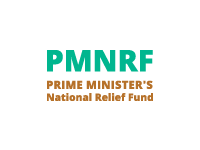Arvind Kumar
National Book Trust, New Delhi-110016
With the amendment of the Copyright Act in 1994, which came into force on 10 May 1995, the situation with regard to copyright enforcement in India has improved. According to Ramdas Bhatkal of Popular Prakashan, Bombay, "We had problems of piracy relating to medical textbooks before the law was amended. At that time we found that while the law may be on our side, it was necessary to get a court order for search and this meant that there was sufficient notice to the pirate to take defensive action before the court order could be implemented. Therefore we preferred to accept the situation and did nothing. Since the changes which make copyright violation a cognizable offence it has been possible to use the legal mechanism as a deterrent."
Section 64 of the Indian Copyright Act 1957 provides that "Any police officer, not below the rank of a sub-inspector, may, if he is satisfied that an offence under Section 63 in respect of the infringement of copyright in any work has been, is being, or is likely to be, committed, seize without warrant, all copies of the work, wherever found, and all copies and plates used for the purpose of making infringing copies of the work, wherever found, and all copies and plates so seized shall, as soon as practicable, be produced before a magistrate."
Manas Saikia of the Cambridge University Press and Foundation Books feels that "despite a reasonable tough law, it is extremely difficult to get the police to make raids and arrests and seizures in the case of actual pirates. Most such piracy in Delhi for example occurs in the old city...Banaras and Patna are the other big piracy centres. The actual pirates are involved with the under world. Most publishers would find it difficult to tangle with them."
Oxford University Press have experienced the problem of piracy with their major selling school books, dictionaries and college textbooks including popular medical books. Manzar Khan, managing director writes, "there are times when we have come across old editions being pirated in sensitive areas like medicine which is very harmful for the students. What is most frustrating is that we are not able `to book' the pirates as it is difficult to locate the exact source. It has been difficult to coordinate with the police for conducting raids as the police are not able to comprehend the exact nature of the offence in the `Copyright Law' which leads to delayed action."
Sunil Sachdev, Director, Allied Publishers is fortunate in not having faced any serious problem of copyright violation. However, he recounts one incident, which is reproduced below:
"There was one occasion when I did find some pirated copies of a textbook and I went to meet somebody at the Police Headquarters. I also had a receipt from the shop who were selling the pirated books. However, the police said that it would make little sense to conduct a raid at one shop only without actually locating the source of supply. It was left to us to hire a detective agency who should try to locate the printer of the unauthorised edition of our book or to locate the warehouse where the stocks were held. We could not subsequently complete this exercise and had to drop the matter."
Some publishers are of the view that offences committedunder the Copyright Act should be brought underthe Indian Penal Code. Rajendra Kumar Gupta, Managing Director, S Chand & Company shares this view and writes about some of the difficulties faced by him:
-
It is generally felt by the police officers that infringement of copyright is purely an economic offence and unlike in criminal cases, cognizance cannot be taken;
-
Police is willing to raid only the printing press where the actual infringement takes place, and not the binding houses or the godown; and
-
Some police officers insist that the publisher should bring a certificate from the Registrar of Copyright.
Despite the difficulties involved, Rajan Mehra of Rupa & Company has been fairly successful in getting police cooperation for conducting raids and confiscating stocks. Talking of foreign books, he maintains that over the last six-eight months, there has been an increase in piracy. Only such titles are, however, pirated which are either not available or are priced too high. A factor which encourages the pirates is that only the owner of copyright or an exclusive licensee can file a suit for infringment and in case of foreign books, the process of obtaining the specific power of attorney is quite time consuming.
Rajan Mehra takes advantage of the Copyright Enforcement Cell set up by the Government of the National Territory of Delhi. The states of Andhra Pradesh, Assam, Goa, Gujarat, Haryana, Himachal Pradesh, Jammu & Kashmir, Karnataka, Kerala, Meghalaya, Sikkim, Tamil Nadu and West Bengal and the Union Territories of Andaman & Nicobar Islands, Chandigarh, Dadra & Nagar Haveli, Daman & Diu have also set up such special cells. Yet, according to Mehra, action by the police still takes a lot of time. Since the police is generally not willing to conduct raids outside the area of their jurisdiction, Mehra maintains that effective all-India enforcement is still not available. He also feels the need for special courts to deal with copyright cases.
According to Urvashi Butalia of Kali for Women, "Publishers have stressed again and again that piracy is a problem that must be confronted on all fronts. The law itself is not enough to tackle the clever pirate, who can always find a way to evade its each". She quotes Pravin Anand, leading copyright lawyer and expert who said at the 1992 IPA Convention :
"Copying a book is similar to stealing somebody's jewellery. Large scale organized copying is like robbing a jeweller's shop or a bank. But then, there is a major difference. In the case of a bank robbery the newspapers are full of sensational news and the whole might of the State, especially the police, jumps in to catch the culprit, there is pressure of public opinion even on the judge trying the case.The effect is electric.
On the other hand, in the case of a book pirate, the police justify their inaction by pointing to murder dockets; the State deflects the desperate appeals of Copyright owners with nonchalance and the judge sits with a `so what' attitude while the man on the street remains in stark oblivion.
General lack of awareness about the importance of copyright is a serious problem. KS Padmanabhan of East West Books rightly believes that enforcement will be more successful if awarness about the problem is brought about by wide publicity. According to him. "Several academics are unaware of the implications of copyright infringement. At a recent book exhibition organized at the Madras University, several faculty members were asking permission to take books out for photocopying. We had a hard time in trying to explain to them that what they intend doing is an infringement of the copyright law. If this is the case with faculty members, you can well imagine the problem we face with students who freely photocopy textbooks. We also find several unscrupulous trademen engaged in freely selling photo copies of textbooks".
The problem of photocopying can be solved only by the effective administration of copyright through a copyright society of authors and publishers. Though the Copyright (Amendment) Act of 1994 provides for the setting up of such societies no copyright for literacy works has come into existence till today.
Establishment of a copyright society is necessary also for effective administration of all such copyright and neighbouring rights where the individual exercise of such rights, because of their number and circumstances relating to their uses, is impracticable or economically disadvantageous. These include the staging rights of plays because it is impossible for playwrights to keep track of the show put up by theatre groups all over the country, and collect payment for them. According to Vijay Tendulkar, Maharashtra is the only state where the legal requirement of obtaining the staging rights is followed even by amateur theatre groups.
Mrinal Pande, author and journalist, feels the need for introducing the institution of literacy agents. In the absence of agents, authors are not able to guard their interests. Pande sees a growing mistrust between authors and publishers and for this she blames the bulk purchase schemes, she alleges, have attracted such commercial operators to the book industry who do not honour any clause of the agreement with the author.
Prof. Nayani Krishnakumari, Vice-Chancellor, Telugu University and eminent novelist, believes that publishers invariably overprint—they declare 2,000 copies but bring out editions of 5,000. She is bitter and helpless about the reprinting of her novel Gautami by an Andhra publisher without her permission.
There is little help available to the author if the custodian of his/her copyright—the publisher—turns into an exploiter. Even the most respected authors are not spared. For example, the works of one of the foremost art historian of our country are brought out by a leading publisher in Delhi. After the death of the author, the rights vest with his son, who lives in the United States. He has the following to report about the publishers:
"I have made it clear to him (the publisher) that he does not have permission to publish anything he likes. Many of the things he has published without permission and has not paid royalties for some ten year. I do not, however, wish to become involved in a law suit as my condition and distance preclude me doing so, apart from my dislike of such things."
According to the booklet brought out by the Department of Education.
"The copyright does not protect the idea but it does protect the skill and the labour put in by the authors in producing the work. A person cannot be held liable for infringement of copyright if he has taken only the idea involved in the work and given expression to the idea in his own way. Two authors can produce two different works from a common source of information each of them arranging that information in his own way and using his own language. The arrangement of the information and the language used should not be copied from a work in which copyright subsists."
Many problems that authors face arise out of the above interpretation. Giving her comments on copyright enforcement, Shobha De, author of many best sellers, writes that "at present my biggest fight is against TV serial makers who commission programmes, ask for detailed concept note and disappear. Next thing, I see an inspired version of my original script on the small screen. So far I have yet to come across a competent lawyer to advise me on how best to protect myself. We need legislation with teeth if we are serious about enforcing what I consider is the basic right of any creative person which is : the idea itself."
Manohar Shyam Joshi, leading Hindi writer and author of the first TV serial, Hum Log, is facing the same problem. His short stories and novels are being "re-written" by serial and film-makers not only to avoid paying him but also to mutilate them to satisfy box-office requirements.
Grey areas in the Copyright Act are also harmful to publishers. A case in point is the Penguin-India Book Distributors case. In 1983, Penguin Books (England) filed a case against India Book Distributors for the infringement of Penguin's territorial copyright in 23 books. According to the suit, India Book Distributors were illegally importing into India and selling copies purchased in United States of titles for which territorial rights in India were with Penguin Books in England. The plea taken by India Book Distributors was that according to the Anti Trust laws of the United States, any purchaser of lawfully published books in America could not be prevented from exporting these to India. Another argument given by the India Book Distributors was that there was no copyright infringement involved because they were importing "lawfully published books" from United States into India.
In the initial stages, Penguin's request for an injunction was vacated, but it was reinstated on an appeal by Penguin through an interlocutory judgement by the High Court. In his order, the judge held that whatever America's laws may be they could have no extra-territorial effect. In his words, "The writ of the United States does not run, in this country." The judge held that the importer of the books in question was subject to the laws of the country within which he was based.
This issue, however, remains far from settled because the order was only interlocutory and without waiting for the final judgement, the two parties settled the matter out of the court.
Before I conclude, I must make it clear that despite the variety of cases given in this paper, there is not much piracy of books in India. By and large, to save their business interests, publishers and distributors try to enforce copyright to the best of their abilities. Yet, piracy hurts them hard because the books which get pirated invariably are the few with good margin and high demand. Deprived of the profits from such bestsellers the book industry starved of the much needed capital for growth and investment in literary works of significance but low sales potential, especially by up-coming authors. Harsher measures are therefore needed to curb piracy.
Another area of copyright infringement which needs to be tightened up relates to protection of author's rights vis-a-vis the assignee or the licensee. There is need to develop a model contract, too, which should also provide protection for the author's rights in the fast changing scenario of electronic publishing, Internet, etc.
-------
*Reproduced from Journal of Intellectual Property Rights Vol 2 January 1997





















